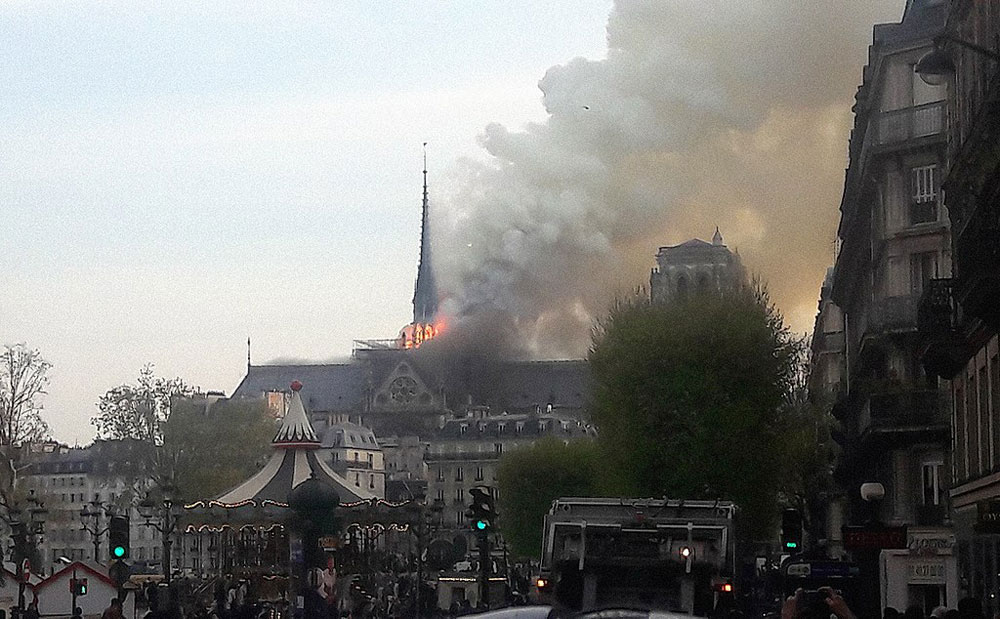
June 14, 2019; Associated Press
We last covered the Notre Dame Cathedral after the fire in April, when billionaires were vying with each other to meet or up the ante on the sheer size of the donations they would pledge. Note that I said “pledge,” not “make”—in fact, to date, not a penny of those really big gifts have been received. Instead, the 150 workers on site are being funded by the gifts of small donors, which are being run through charitable foundations at Notre Dame.
“The big donors haven’t paid. Not a cent,” said Andre Finot, senior press official at Notre Dame. “They want to know what exactly their money is being spent on and if they agree to it before they hand it over, and not just to pay employees’ salaries.”
That is, those employees who are cleaning up the now-toxic grounds. After all, where’s the glamour in that?
An estimated 300 tons of lead that made up the cathedral’s roof melted or was released into the atmosphere during the fierce blaze, which sent out toxic dust. The city’s regional health agency says high levels of lead are now present in the soil of the island, the Ile de la Cite, and in nearby administrative buildings. It has recommended that all pregnant women and children under seven living nearby take blood tests for lead after an abnormally high level was detected in a child in the area.
When the pledges were being made, some thought the bidding war unseemly because it smacked of vanity. This most recent reveal of the character of the donors involved just seems to make it even more so.
Sign up for our free newsletters
Subscribe to NPQ's newsletters to have our top stories delivered directly to your inbox.
By signing up, you agree to our privacy policy and terms of use, and to receive messages from NPQ and our partners.
Francois Pinault of Artemis, the parent company of Kering that owns Gucci and Saint Laurent, promised 100 million euros ($112 million), while Patrick Pouyanne, CEO of French energy company Total, said his firm would match that figure. Bernard Arnault, CEO of luxury giant LVMH that owns Louis Vuitton and Dior, pledged 200 million euros ($224 million), as did the Bettencourt Schueller Foundation of the L’Oréal fortune.
But the donors are now taking their time—and their license—with those gifts. A spokesman for the Pinault Collection blames their delay in releasing the money on paperwork.
“We are willing to pay, provided it is requested in a contractual framework,” said spokesman Jean-Jacques Aillagon, adding that the Pinault family plans to pay via the Notre Dame foundations. The LVMH Group and the Arnault family say, “Payments will be made as the work progresses.”
[French energy company] Total has pledged to pay its 100 million euros via the Heritage Foundation, whose Director General Celia Verot, confirmed that the multinational company has not paid anything yet. She said donors are waiting to see what the plans are and if they are in line with each company’s particular vision before they agree to transfer the money.
“How the funds will be used by the state is the big question,” Verot said. “It’s a voluntary donation, so the companies are waiting for the government’s vision to see what precisely they want to fund.”
Reporter Thomas Adamson writes that this “suggests wealthy donors want their money to go toward long-lasting, immortalizing structures and not on the ephemeral but equally vital tasks of cleaning and securing a site that poses real health risks for Parisians.” And so it goes.—Ruth McCambridge













